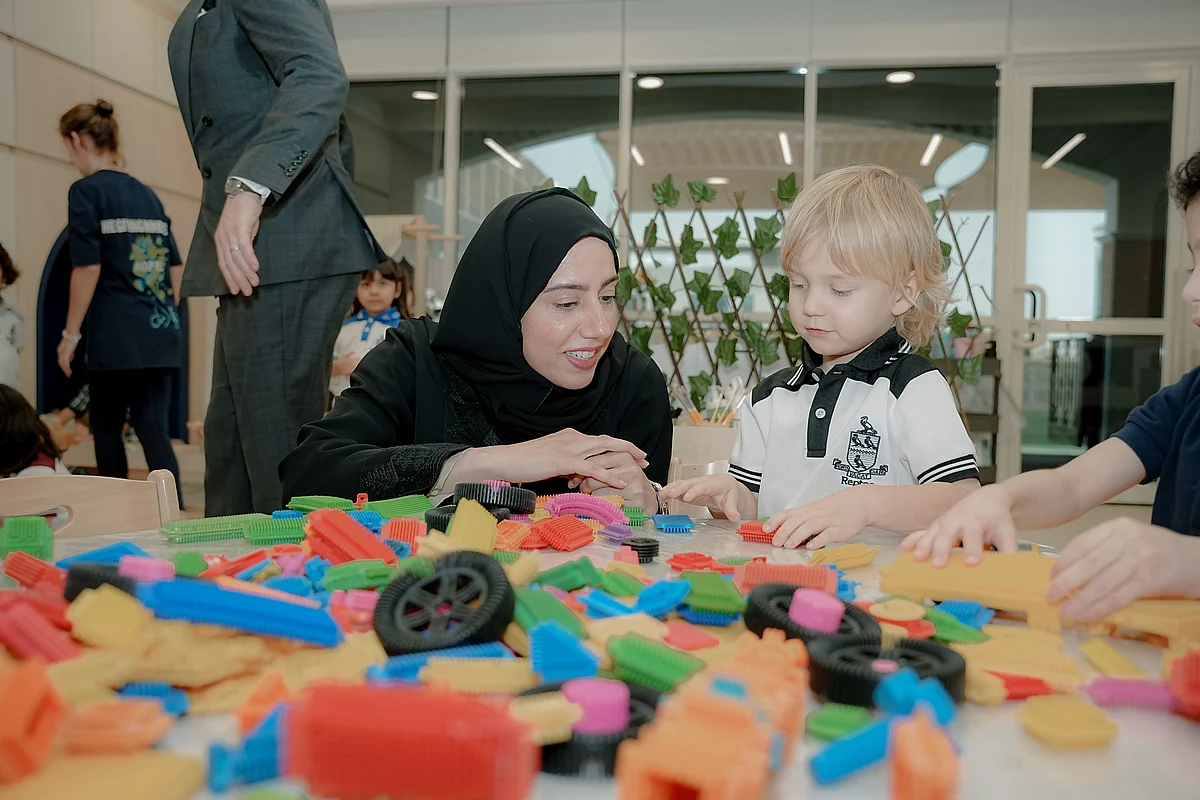
Who's Teaching Your Child? A Parent's Guide To Teacher Qualifications In Dubai
[Editor's Note: This article is part of Khaleej Times' Schools and Parents , a dedicated section designed to support families in the UAE as they explore educational choices. The section offers explainers, guidance from education leaders, expert advice and insights from parents to help readers make informed decisions about schools, curricula and communities.]
When parents look for a new school in Dubai , the first things that usually catch their eye are the bright classrooms, modern labs, and lively playgrounds . But beyond the facilities, one question matters most: Who will be teaching their children, and are they truly qualified?
Recommended For YouThe emirate's education regulator, the Knowledge and Human Development Authority (KHDA) has now tightened the rules to give families peace of mind.
In a new set of guidelines released recently, the authority has made it clear that every teacher in a Dubai private school must meet strict requirements - covering academic qualifications, professional experience, safeguarding checks, and even mandatory training.
Stay up to date with the latest news. Follow KT on WhatsApp Channels.
For parents, this means greater transparency and reassurance that the person standing in front of their child's classroom is capable, vetted, and prepared.
Here are the most common questions parents ask about teacher qualifications in Dubai.
1. What qualifications should your child's nursery teacher have?
Nursery teachers working with children aged 45 days to 35 months must hold a Level 3 QF Emirates qualification in Early Childhood Education. No prior experience is required, but if a teacher is new, they must be directly supervised for six months by a qualified and experienced colleague.
2. What should parents look for in Pre-KG/Foundation Stage (FS) teachers?
For children aged 3 to under 6 years, teachers need a Bachelor's degree (Level 6 QF Emirates) in Education/Early Childhood Education. Alternatively, they can hold a Bachelor's degree in any subject plus a Level 3 qualification in Early Childhood Education.
They also need at least one year of recent teaching experience or, if new to the profession, six months of supervised teaching practice.
3. What qualifications are required for your child's primary/elementary school teachers?
For students aged 6 to 11 years, teachers must have a Bachelor's degree in Education or a Bachelor's in any subject plus six months of supervised practice.
They also need at least one year of recent experience, or if new, six months under the guidance of an experienced primary teacher.
4. What should parents know about specialist subject teachers and school principals?
Specialist teachers working with children aged 6 to 18 years must hold a Bachelor's degree relevant to the subject they teach (e.g., BA in English, BSc in Physics).
They need at least one year of subject-specific teaching experience, or six months of supervised practice if they're new.
As for principals, their appointment becomes legally valid only after KHDA issues an official appointment letter.
5. Are the rules different for teachers already working in Dubai?
Yes. Teachers currently employed can continue in their schools but must upgrade their qualifications by September 1, 2028 or April 1, 2029 for schools with an April academic year start. This ensures all teachers meet the new standards in the long run.
6. What background checks are required before a school hires a teacher?
Parents can be reassured that schools must carry out strict due diligence, including:
- Checking KHDA's Deregistration List
Collecting at least two professional references Criminal and safeguarding checks across all relevant countries
Reviewing the teacher's CV, qualifications, and online presence
Only after these checks are complete can a formal panel interview be held.
7. What legal documents must every teacher have before starting work?
Before starting, every teacher must have:
- A valid UAE residence visa
Fully attested and accredited qualifications A UAE police clearance certificate
Police clearance from any country they lived in during the last five years, or from the home country within the last 10 years A signed Code of Conduct
8. Will your child's teacher receive mandatory training?
Yes. All teachers must complete mandatory professional development before taking up their role. This includes training in:
- Code of conduct
Health, safety, and risk management Child protection and safeguarding
Working with Students of Determination
9. How can parents confirm that their child's teacher is qualified?
Parents can ask schools directly about teacher qualifications and KHDA approvals. Since the KHDA audits these records, schools are required to keep all documentation up-to-date and available.
10. Why is it important for parents to know about these requirements?
These rules ensure that children are taught by qualified, safe, and well-trained teachers who understand not only academics but also child wellbeing and safeguarding. It helps parents trust that Dubai's private schools are hiring responsibly and to global standards.

Legal Disclaimer:
MENAFN provides the
information “as is” without warranty of any kind. We do not accept
any responsibility or liability for the accuracy, content, images,
videos, licenses, completeness, legality, or reliability of the information
contained in this article. If you have any complaints or copyright
issues related to this article, kindly contact the provider above.


















Comments
No comment